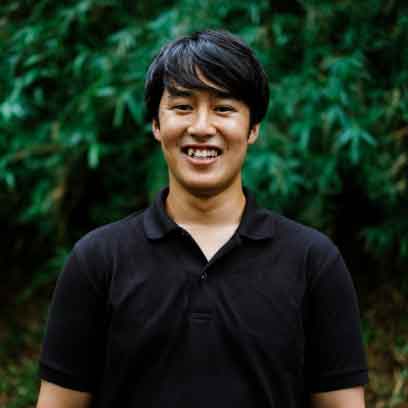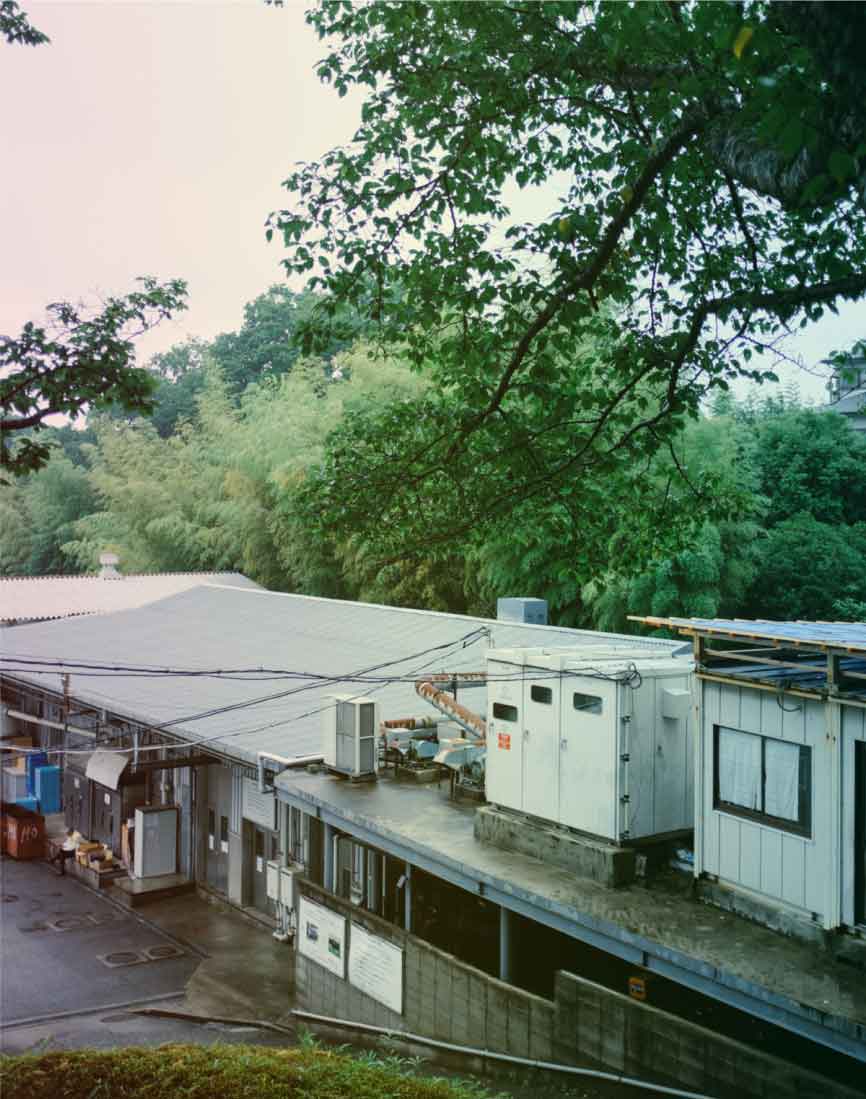
OUR PHILOSOPHY
We, Sanda Meat Center, started in 2014 as a halal meat center. We want Muslims around the world to be able to enjoy Japan's proud Wagyu beef with peace of mind. This desire can be realized thanks to the Muslim staff who work here. Since we started to make all production processes and working environments halal, all the staff working here are Muslims. Gohrai Kimata, who is in charge of quality control of halal meat and management of Muslim staff, shares her thoughts on working here.
Proud to bring halal meat to the world
I was born in Malaysia, where my father is Malaysian and my mother is Japanese. Later, at the age of 9, he moved to Japan. Actually, it is quite difficult to spend time in Japan as a Muslim. There are many Muslims and second-generation Muslims who live with the feeling of “not being able to spend time like everyone else” and “wanting to eat safe food,” for example, because they cannot eat some of the foods in the school lunch program. Because of this experience, I began to think that in the future I would like to work with halal food products. Because of this experience, I began to think that in the future I would like to work with halal food products.
In Malaysia, during the Islamic festival of Eid (a month after the end of the fast), families and friends buy and process cows and distribute them to their neighbors. In Japan, slaughtering is unique conduct, but in Malaysia, it is a common scene in everyday life. For Muslims, it is also an act of virtue when other Muslims eat the cows they slaughter. We all feel proud to be able to work on behalf of Muslims.
Kobe beef is known worldwide, and there are Muslims in many countries who would like to try it at least once. Kobe beef is known worldwide, and there are Muslims in many countries who would like to try it at least once. We would like to further increase our export destinations in the future.



To be “Full Halal”
in the true sense of the word
We are particularly confident in our “Full Halal” approach. We do not work on anything other than halal meat. The slaughterers are Muslims who have undergone training and obtained licenses in various countries, including JAKIM, a halal certification organization in Malaysia. Four of us, including myself, are licensed as halal and slaughterhouses. During the “JAKIM” training, participants learned about sharia (Islamic law), knife handling, slaughter methods, and the concept of animal welfare.
Now, 10 Indonesians, 2 Malaysians, and 1 Bangladeshi Muslim are members of the workplace. Closed on Fridays, the day of Islamic collective prayer. They also have a prayer room and are aware of creating a Muslim working environment. Recently, during Ramadan (fasting), we have been able to arrange to return home in the evening to coincide with Iftar, the first meal of the day, and have also arranged for a cow for Eid. I feel that we are able to say that we are more confident in our halal meat business because we are able to live according to the precepts as well as the method of slaughtering.



When Halal Meat for the
World's Muslims Flourishes in Japan
Currently, we wholesale the parts that we do not export domestically and set up a vending machine in front of this center to sell them, so Muslims living in the area also come to buy quite a bit. Also, the Kobe Muslim Mosque, the oldest in Japan, located in Sannomiya, Kobe, offers free evening meals during Ramadan, and they decided to use our halal meat after visiting our slaughterhouse.
In this way, little by little, it has come to serve as a place to supply protein to the local Muslim population. It is a Japanese company, but it is also like one of the communities for Muslims. Incidentally, we are planning to build a “Sanda Mosque” on the factory grounds someday. We will build a place of worship in our community.” If it comes to fruition, Fridays will be a good time to attend a group worship service nearby, and it will also be a place to educate employees' families. I think we can create an environment that is easier to work and live in. I am looking forward to it.












INTERVIEWEE

Mr. AHIKU KIMATA
With roots in Japan and Malaysia, he grew up in Malaysia until the age of 9. When he was a university student, he joined Sanda Meat Center as an intern, and later got a job there. He is fluent in Japanese, English, and Indonesian, and is active in organizing the Muslim staff. He himself holds a “JULEHA” slaughter license and is in charge of quality control for export. In addition to expanding export destinations, the company also has ambitions to “expand sales channels in the domestic market” for Muslims living in Japan in the future.
FACILITY
INFORMATION
Company Name
Sanda Meat Center (Sanda Meat Center Ltd)
Brands
Kobe Beef, Kumano Beef, Omi Beef, Matsusaka Beef, Ozaki Beef, Kirishimarble, etc.
Established
October 23, 1985
Employees
13employees
TEL/FAX
078-986-2622/078-986-2621
Address
11 Eibara, Nagao-cho, Kita-ku, Kobe-shi, Hyogo
651-1151
Google Map
Access
15 min walk from Yokoyama Station on Kobe Electric Railway or 30 min walk from Sanda Station on JR Fukuchiyama line.



